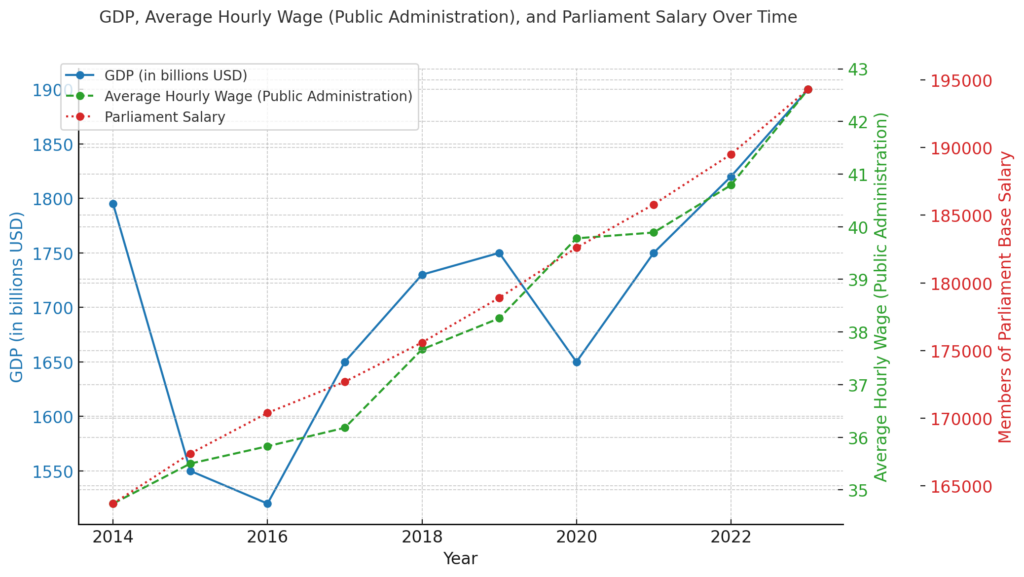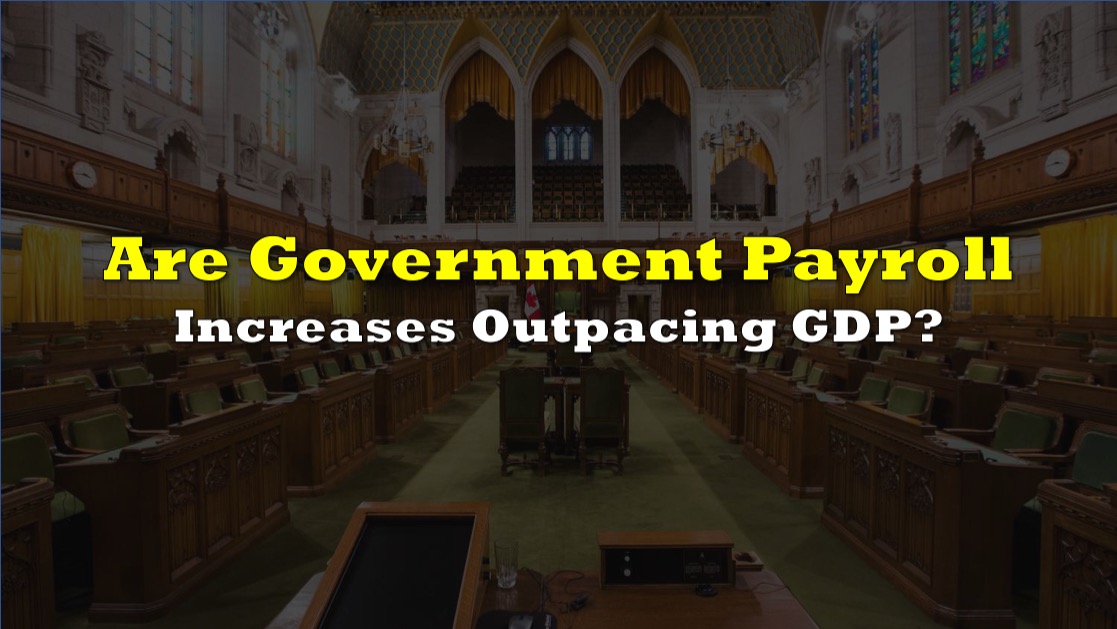Recent social media discussions, including a notable query from Tobi Lütke, CEO of Shopify (TSX: SHOP), have sparked a debate about the growth of government payrolls in comparison to productivity and GDP. This discussion is particularly relevant as Canada navigates economic challenges and scrutinizes public sector expenditures.
Lütke, known for his influential role in the tech industry, recently posted: “Does anyone have a chart handy of federal and provincial government payroll growth over the past 20 years? Would be interesting to compare to productivity and GDP.”
Does anyone have a chart handy of federal and provincial government payroll growth over the past 20y years? Would be interesting to compare to productivity and gdp. https://t.co/HQ14k7qzEI
— tobi lutke (@tobi) June 12, 2024
Over the past two decades, government payrolls at both federal and provincial levels have seen significant increases. This growth can be attributed to several factors, including the expansion of public services, increased hiring in the public sector, and routine salary adjustments to keep pace with inflation and market conditions.
To give context, this column compared the country’s GDP, the average hourly wage rate in the public administration industry, and the base salaries of MPs. Canada’s GDP has experienced fluctuations, particularly during economic downturns like the COVID-19 pandemic. Despite these challenges, there has been a general upward trend in GDP over the long term.

This follows a report that MPs were expected to receive their annual pay raise last April, resulting in increases between $8,500 and $17,000. The base salary for MPs rose from $194,600 to $203,100, making them the second-best paid elected officials globally, after American congress members.
Prime Minister Justin Trudeau’s salary, in particular, increased by $17,000, reaching $406,200 annually. The raise has been met with widespread public disapproval, with 80% of Canadians opposing it according to a Leger poll. Additional remuneration is provided for senior roles, with the Speaker, opposition leader, and cabinet ministers receiving an extra $96,800 annually. Other positions, such as chief whips and committee chairs, also receive significant salary boosts.
Stephen Punwasi, an economic analyst, criticized recent government decisions, highlighting a perceived disconnect between public sector pay and economic fairness. He posted: “Taxes on productive investment need to be raised for generational fairness says Canada’s government… the same one that just gave themselves a raise & are pushing to delay the election so they can collect pensions early without re-election.”
Franco Terrazzano of the Canadian Taxpayers Federation added: “MPs should know better than to give themselves raises while their constituents are worried about rising mortgage payments and struggle to feed their families. It’s not rocket science: MPs should do the right thing and stop their upcoming pay raise.”
Historically, MPs have frozen their salaries during economic hardships. For instance, the Conservative government led by Stephen Harper froze salaries from 2010 to 2013 following the 2008-09 financial crisis.
The Liberal government’s recent proposal to move the next federal election forward by a week has also faced criticism, as it would increase the number of MPs eligible for a pension, which is largely based on salary.
Information for this story was found via the National Post and the sources mentioned. The author has no securities or affiliations related to the organizations discussed. Not a recommendation to buy or sell. Always do additional research and consult a professional before purchasing a security. The author holds no licenses.







